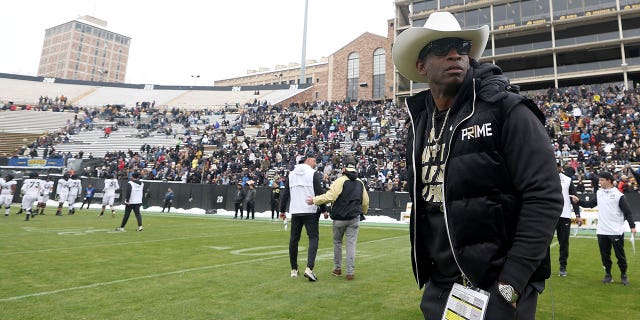When Anna Gazmarian was diagnosed with bipolar disorder while still in college, she expected to be supported by her church community.
Instead of finding support during a dramatic life change, she discovered that many in the church viewed her illness as an affliction of the spirit rather than an actual medical condition. Gazmarian spent the next ten years seeking treatment and compassion within the evangelical community to mixed results, an ordeal she documents in her acclaimed memoir Devout: A Memoir of Doubt.
Gazmarian and I discussed misogyny in the evangelical church, religious trauma, and how both the literary community and the evangelical church can better support mental health.
Deirdre Sugiuchi: After a breakup with your college boyfriend, you are told by a pastor that you are viewed as a spiritual stumbling block in your ex’s relationship with God, and are pushed out of your church. Can you discuss this mindset, of viewing women as being stumbling blocks to men, which may be unfamiliar to secular readers? How do you think that attitude impacted your mental health?
Anna Gazmarian: The idea that women are seductresses and stumbling blocks to God goes back to the Garden of Eden when Eve gives Adam the apple. I’ve listened to many Christians use this story to show how women are temptresses who lead men to stumble and fall away from God. This interpretation fails to account for Adam’s decision to listen to Eve and make his own decisions. From an early age, I thought that it was my job to keep men from sinning. I dressed a certain way and set boundaries because I feared leading men astray. I mean, I refused kissing for several months because I wanted to keep them from desiring just my body.
I thought that it was my job to keep men from sinning. I dressed a certain way and set boundaries because I feared leading men astray.
This continues to impact me. If I find a guy staring at me or complimenting me, I flinch or revert back to my evangelical mindset—even if rationally it doesn’t make sense. It took me until after college to regularly make eye contact with any man because I worried what he thought of me while looking at me, if I was causing him to sin. I followed my modest high school dress code through college because I did not want attention. All of this changed after I had my daughter. I spent so much time thinking what I wanted for her that I did not have. So, shortly after she was born, I embraced crop tops. I wear them proudly without giving a fuck about who looks at me. It makes me feel good. It’s taken years for me to embrace what I love to wear and what is comfortable for me while separating how it might be perceived by men. It’s an endless cycle of distancing myself from the male gaze, which is something every woman eventually grapples with.
All of the conversations were about protecting men from lust and sin but at the expense of women. This is an extension of purity culture where maintaining virginity is seen as the most important thing to do. From an early age, I did repress my sexuality because I was told that was not a part of myself that I could explore until marriage. I was taught not to want sex or desire anything physical but once I got married, it was totally okay. But that did not happen to me. I got married and suddenly felt extremely guilty about my body and sexuality. I had been programmed to do whatever my husband wanted and could not separate that from my own desires.
DS: When you are in religious counseling, you are encouraged to take incidences from the Bible and apply them to your life. What are the pitfalls of this practice, particularly in regards to mental health?
AG: I find it very dangerous how many in the Christian counseling community rely on the bible as a salve for mental conditions. The counselor that I saw never actually mentioned the possibility of me having a mental illness. It is easy to take verses out of context and turn them into a way that serves the purpose you are driving at. This is how many have justified homophobia and slavery. Many therapists would give me verses about joy as comfort to me. But this is the last thing that I needed to hear from a religious person when contemplating my own death. On top of being morbidly depressed, I was overwhelmed with anxiety, guilt, and shame that none of my efforts like prayer led to my symptoms alleviating. I viewed my diagnosis as my own fault and at times, that is still something that I struggle with.
DS: Later, a counselor alludes to your suffering from religious trauma. Can you discuss what this is and how it impacted your life?
AG: This was a therapist who had a theological background in a more progressive seminary than the places I knew about growing up. Spiritual trauma means different things to people but for me it’s about religious institutions being used in a toxic way to manipulate and control individuals in the name of God. For me, certain events did occur that were traumatizing but it was the overall exposure of a rigid and strict environment that sought to take away my personal autonomy in the name of God that stuck with me. Recently, I was diagnosed with Complex Post-Traumatic Stress Disorder because of my experiences with religious trauma.
It impacts me in all sorts of ways. There are still days where ideas that my illness or bad things that happen are because I sinned or don’t have enough faith. Even though I can rationally believe this isn’t true, those old thought patterns often show up. Purity culture impacts the way I relate to my body and sexuality. It’s taking to unlearn how not to be completely detached from myself and not seeing my very self as something that is bad or needs to be hidden.
It is very complicated still identifying as a Christian and struggling to read scripture, participate in church, and pray because of how it’s been previously used. It’s taken many years for me to see God as safe versus a part of my life that I need to approach with fear. I’m still grappling with a lot of guilt and shame. Flannery O’Connor has a quote about the South being Christ-haunted. I definitely feel that both in living where I am but also in my faith journey. It’s frustrating that I can’t participate in faith communities the way that I’ve previously had and felt belonging in. However, finding people outside of the church and building a community has been a reclamation.
DS: You wrote this book while completing your MFA. Did you feel like your cohort understood evangelical culture?
I thought if I strived enough spiritually, that I would get healed. But that’s not the case. Science and faith are not enemies.
AG: It’s funny, because going into my MFA program, I had no intention of writing about my upbringing. If anything, I had so much shame and embarrassment around it. No one in my MFA understood directly, I actually tend to gravitate towards people who live opposite lives as me. But, having them love me in spite of my upbringing, to see how they identified with parts of my story in spite of our differences meant the world to me. I decided to write about my faith journey because I realized I could write it in such a way that people without my upbringing could understand. It’s very important to me to write about my experiences in a way that people outside my world can understand and gain a deeper empathy for those deemed closed minded and problematic. Underlying my story, there’s the desire to belong, the constant striving, anxiety, and inability to accept the uncertainty of life. That’s something anyone can relate to. My two closest friends from the program are a universalist Catholic and ex-Buddhist. They’ve read every draft.
DS: You have a mental health break while at your low-residency MFA, but are saved from spiraling due to the intervention of a friend. Can you discuss how you were helped, and outline best practices for workshops, based on what you learned in your experience?
AG: I see a problem in general with institutions having limited resources to offer long-term mental health resources. I think that any MFA program needs to have therapists available, especially when so many workshops involve traumatic memories coming up. That was the hardest part for me. I would sit in these lectures and so many parts of my spiritual trauma would come up. I had no idea what was going on because things were resurfacing and real time. For a few nights I called public safety to check on me to make sure I didn’t do anything. I called a suicide hotline but hung up on them because I didn’t need strangers telling me that my life mattered. I figured if they knew me they wouldn’t say that.
I also think that workshops need to be more trauma informed. Professors need to be trained to better handle material that is distressing for the writer and ways to navigate discussion. I also think it’s important that MFA programs reassess their culture. I’ve heard from many and witnessed how partying is encouraged and part of the culture. There’s so much still assumed about writers having to be emotionally unhealthy people. I seek to prove that you can be healthy and a good writer.
DS: What do you wish that people in the faith or out understood about mental health?
AG: I wish that we could move away from the idea that faith is about making life more manageable, pain free, happier, and certain. If we changed the way that we confront and grapple with pain, I think that we could make more space for the impacts of mental illness and better love people. I don’t think that can happen until we change the way we view scripture and be willing to accept the painful parts of being human instead of trying to pray it away. Most of my life has involved seeing religious people use religion as a weapon against suffering. But that for me is completely counter to who I believe God is and what I think the church is supposed to be. The reality is that Jesus spent his time with everyone condemned by religious people. I believe that included the mentally ill. He did not dwell with those deemed righteous, he spent his ministry with those seen as untouchable.
[We should see] suffering as part of what makes us human and not something to avoid or a sign of weakness or little faith.
I’m grateful for my depression in a way because it has enabled me to interact with the bible in a different way. Scripture shows the value in accepting where people are at. The reality is that people throughout scripture, including Jesus and those deemed most faithful by God, showed many signs of mental illness. I have a tattoo of an olive branch commemorating the Garden of Gethsemane where Jesus sweated blood and pleaded with God. There’s something really rich and healing for me to live a life of faith that believes that both sorrow and joy can coexist. Even when my sorrow is overwhelming and I see no way through, there’s a comfort in now believing that I am not being condemned for how I feel. I wish that more Christians spent more time reading laments where people throughout scripture plead and question God without often coming to conclusions.
If we saw suffering as part of what makes us human and not something to avoid or a sign of weakness or little faith, that would change how we approach mental illness. I’ve also met several counselors who see mental illness as a spiritual affliction. This was one of the most harmful parts for me. I thought if I strived enough spiritually, that I would get healed. But that’s not the case. Science and faith are not enemies.
DS: I see your book as being one of many that is calling for change in the evangelical church. What kind of conversations do you hope your book will spark within or without the church?
AG: When I wrote this book, it was really important to me that it was written in such a way that people who practice faith and those who don’t could identify with. It was important for me particularly with the opening chapters to encapsulate a depiction of the impact of religious trauma and how it impacted my mental health. Churches need to take religious trauma seriously and take steps to be more trauma informed in how they approach language and biblical interpretations. I utilized the bible throughout the book because I wanted to show how trauma lingers and how these stories have shaped me. I hope that those who grew up similarly can relate. So many religious people have asked me, why can’t you move on from being hurt by churches? Why does this still haunt you? Because that’s what trauma does and we need to be mindful of that in how we approach practicing faith. I want this book to make people discuss the role of leadership in religious spaces, how they are not designed to be intermediaries between us and God.
I hope anyone who reads this will cause them to think about ways to love people well and serve those who are in pain. This book honors the importance of community and I hope it gives people courage to seek after that because I wouldn’t have made it this far without that in my life. I think due to Trump and many other intolerant measures by religious groups, it’s easy to dismiss religion altogether as destructive and damaging. I wanted to depict that pain, to create conversations where people can share their wounds with one another and heal. Most of my favorite memoirs about religion end with denunciation. I wanted to create space for those who struggle and continue to stay in spite of the pain. I also wanted to show and cause people to become open that it is possible to live a life of faith that leads to growth instead of fear.

























































